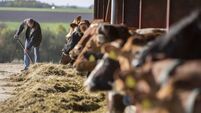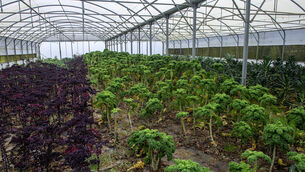Flat-rate VAT payment decrease to cost farmers €61.5m in 2026

The biggest positive for farmers in the budget was the young trained farmer relief being extended for four years, providing full relief from stamp duty on conveyance or transfer of land to a young, trained farmer.
Irish farmers will get €61.5m less for their produce next year, due to farmers' flat-rate VAT payment decreasing from 5.1% to 4.5%.
Flat-rate farmers are not entitled to recover VAT charged on all farming expenses, because they are not VAT-registered. Instead, the long-standing flat-rate payment compensates them, added on to the price at which they sell their products to VAT-registered entities such as marts, meat factories, milk processors, etc.











